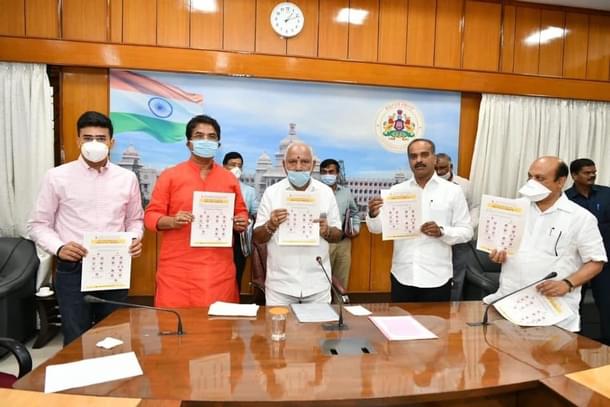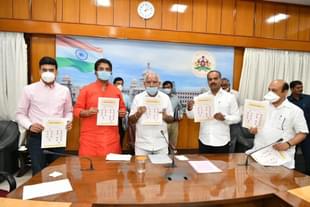Blogs
The Karnataka Model: An Example Of Effective Governance
P.C. Mohan
Jun 18, 2020, 05:11 PM | Updated 05:11 PM IST
Save & read from anywhere!
Bookmark stories for easy access on any device or the Swarajya app.


In mid-March, a 76-year-old man with co-morbidities such as asthma, hypertension, and diabetes fell ill soon after returning from Saudi Arabia.
Though the District Health Official tried convincing his family that he must be shifted to the GIMS isolation ward, his family admitted him to a private hospital in Hyderabad.
Days later when he was discharged and on the way to Kalburgi, he died en route.
The officials sent his throat swab to check for Covid-19 infection on 12 March and had tested positive for the same. Thus, Karnataka reported its first Covid-19 death and had nearly 3,000 primary and secondary contacts to trace.
From 8 to 19 March, over 43,000 people returned to Bengaluru amidst the pandemic, from abroad. Around 500 police teams from 108 police stations across the city, the Bruhat Bengaluru Mahanagara Palike (BBMP) officials, airport authorities worked together to contain the spread of Covid-19.
Special teams formed under these government organisations stamped the people who returned from abroad, and issued notices to them to be home quarantined for nearly 15 days.
The government also instructed their communities, neighbours, and families to monitor them and stay indoors. Advisories were issued stating that those who violate norms will be detained and sent to the government centres for quarantine. Bengaluru Police Commissioner Bhaskar Rao handed over details of these travelers from abroad to BBMP and asked them to monitor regularly.
From 565 cases on 30 April to 3,221 by 31 May — Karnataka saw a huge surge in the number of Covid-19 cases — an almost six-fold increase within a month.
Most of the patients, almost 2,656 of who tested positive in May, were inter-state travellers.
The number of positive cases shot up when the state government eased lockdown restrictions. Over nine districts reported more than 100 cases and nearly 10 affected districts had a doubling rate faster than the state average. The state government also projected that the number of cases will likely touch two lakh in the coming months.
After two months, Karnataka has been extremely successful in containing the spread of virus. In terms of the mortality rate, Karnataka has the lowest among the top ten states.
Karnataka government curbed the virus by sealing its border on time, enforcing an early and effective lockdown, and implementing the 'trace, test, treat'.
The state government has been very successful in solving clusters at Nanjangud in Mysuru and contact tracing related to the Tablighi Jamat.
Karnataka handled the Covid-19 situation extremely well and has been a model state for others. The way Karnataka fought the virus explains a lot about the state's officials' driven approach with minimal political interference under Hon. Chief Minister BS Yeddyurappa ji.
Post the first fatality due to Covid-19, the state invoked the provisions of the Epidemic Diseases Act, 1897 and contact tracing went all the way to Hyderabad and far.
The government ordered closing of places like malls, pubs, theatres, schools, colleges, sports facilities, and all sorts of public gatherings in the state. Also, IT/BT companies were asked to shut and work-from-home facilities were sought for its employees.
Additionally, the state government appointed Dr Devi Shetty to set up exclusive health facilities for Covid-19. The government also asked all the hospitals in the state to reserve a few beds for Covid-19 cases.
The Karnataka government updated media bulletins twice a day and held briefings through video conferencing apps daily. District administrations launched localised apps and helplines to deliver goods and monitor people. To sanitise areas, drones were used.
Bengaluru has the fourth largest population among Indian cities, and is the second largest city of India. It has emerged as a model city for all the major cities in controlling Covid-19 as Bengaluru has just 43 cases and 2 deaths per million population.
An active strategy for containment, effective use of technology, and a driven approach has made Bengaluru an example for India.
The credits for successfully handling this grave situation should definitely go to Chief Minister BS Yediyurappa ji, Dr. K Sudhakar, BBMP, Bangalore City Police, corona warriors across, health care officials, doctors, nurses, support staff, and people of the state.
P. C. Mohan is a Member of Parliament representing Bengaluru Central Lok Sabha constituency.





